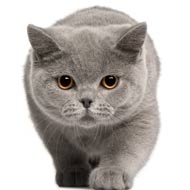Baby mice exposed to cat urine 'less likely to flee' in future

One-month-old mice were exposed to felinine over a period of two weeks.
Mice exposed to a chemical in cat urine at a young age are less likely to avoid the scent in later life, according to a Moscow study reported by BBC News.
Researchers from the AN Severtov Institute of Ecology and Evolution had previously discovered the compound - known as felinine - causes abortions in pregnant mice.
One-month-old mice were exposed to felinine over a period of two weeks. Later tests found they were less likely to run away from the scent, though their physical sensitivity may actually be higher.
Dr Vera Voznessenskaya told BBC News: "More of their receptors detect the compound and the produce higher levels of stress hormone…
"You get a higher response, but less behaviour."
The research team presented their findings at the Society for Experimental Biology's annual meeting in Prague.



 The RCVS has announced a new version of its 1CPD mobile app, with enhanced features for veterinary surgeons and veterinary nurses to record their continuing professional development.
The RCVS has announced a new version of its 1CPD mobile app, with enhanced features for veterinary surgeons and veterinary nurses to record their continuing professional development.